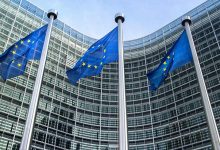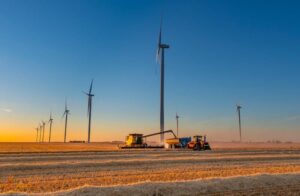The European Commission has announced plans to increase its climate ambitions, raising its greenhouse gas emissions reduction target from 40% to 55% by 2030, based on 1990 levels, a target that will require significant increases in energy efficiency and renewable energy shares.
Europe’s new climate ambition has been tabled as an amendment to the proposed European Climate Law which will include a 2030 greenhouse gas emissions reduction target of at least 55% by 2030 as a stepping stone towards a 2050 climate neutrality goal.
To achieve the newly proposed 55% greenhouse gas emissions reduction, the EU will need to increase the share of renewable energy to around 38% to 40% of gross final consumption. For the EU’s power sector, renewables will be required to supply around two-thirds of the EU’s electricity while fossil fuels must generate less than 20% of the EU’s electricity by 2030.
The European Commission similarly invited the European Parliament and Council to confirm the 55% target as the European Union’s new Nationally Determined Contribution (NDC) under the Paris Agreement and requested they submit this to the UNFCCC by the end of 2020.
Additionally, legislative proposals are to be presented by June 202 to implement the new target, which will require revising and expanding the European Union Emissions Trading Scheme (ETS), adapting the Effort Sharing Regulation and the framework for land-use emissions, strengthening CO2 standards for road vehicles, and reinforcing and increasing energy efficiency and renewable energy policies.
“We are doing everything in our power to keep the promise that we made to Europeans: make Europe the first climate neutral continent in the world, by 2050. Today marks a major milestone in this journey,” said Ursula von der Leyen, President of the European Commission.
“With the new target to cut EU greenhouse gas emissions by at least 55% by 2030, we will lead the way to a cleaner planet and a green recovery. Europe will emerge stronger from the coronavirus pandemic by investing in a resource-efficient circular economy, promoting innovation in clean technology and creating green jobs.”
The new climate ambition was based on a comprehensive Impact Assessment of the social, economic, and environmental impacts of the proposed upgraded policies which demonstrates that these new policies are both realistic and feasible.
In line with this, the Commission also adopted last week an assessment of Member States’ National Energy and Climate Plans for 2021-2030 which shows that the European Union is currently on track to surpass its current 2030 emissions reduction target of at least 40%, thanks in large part to the scale of renewable energy deployment across the EU.
Specifically, the assessment indicates that the European Union’s share of renewable energy could reach 33.7% by 2030 – sliding just past the current target of at least 32%. Unfortunately, the assessment also determined an ambition gap for energy efficiency of 2.9% for primary energy consumption and 3.1% for final energy consumption, compared to the target of at least 32.5%.
Heating and cooling across the European Union will need to see renewables reach around 40% penetration by 2030, achieved primarily through switching fuels towards renewable heating solutions. Buildings must also become more energy efficient and rely less on fossil fuels for heating and cooling, and emissions from buildings must decrease by around 60% by 2030.
The transport sector will need to see renewables reach around 24%, as calculated through the EU’s Renewable Energy Directive, as well as further development and deployment of electric vehicles, advanced biofuels, and other renewable and low-carbon fuels.
“In this crucial moment for our health, our economy and for global climate action, it is essential that Europe leads the way to a green recovery,” said Frans Timmermans, Executive Vice-President for the European Green Deal.
“We owe it to our children and grandchildren to take action now. Today, Europe is showing the world how we will enhance the wellbeing and prosperity of our citizens in the next decade as we work towards our goal of climate neutrality by 2050.”







